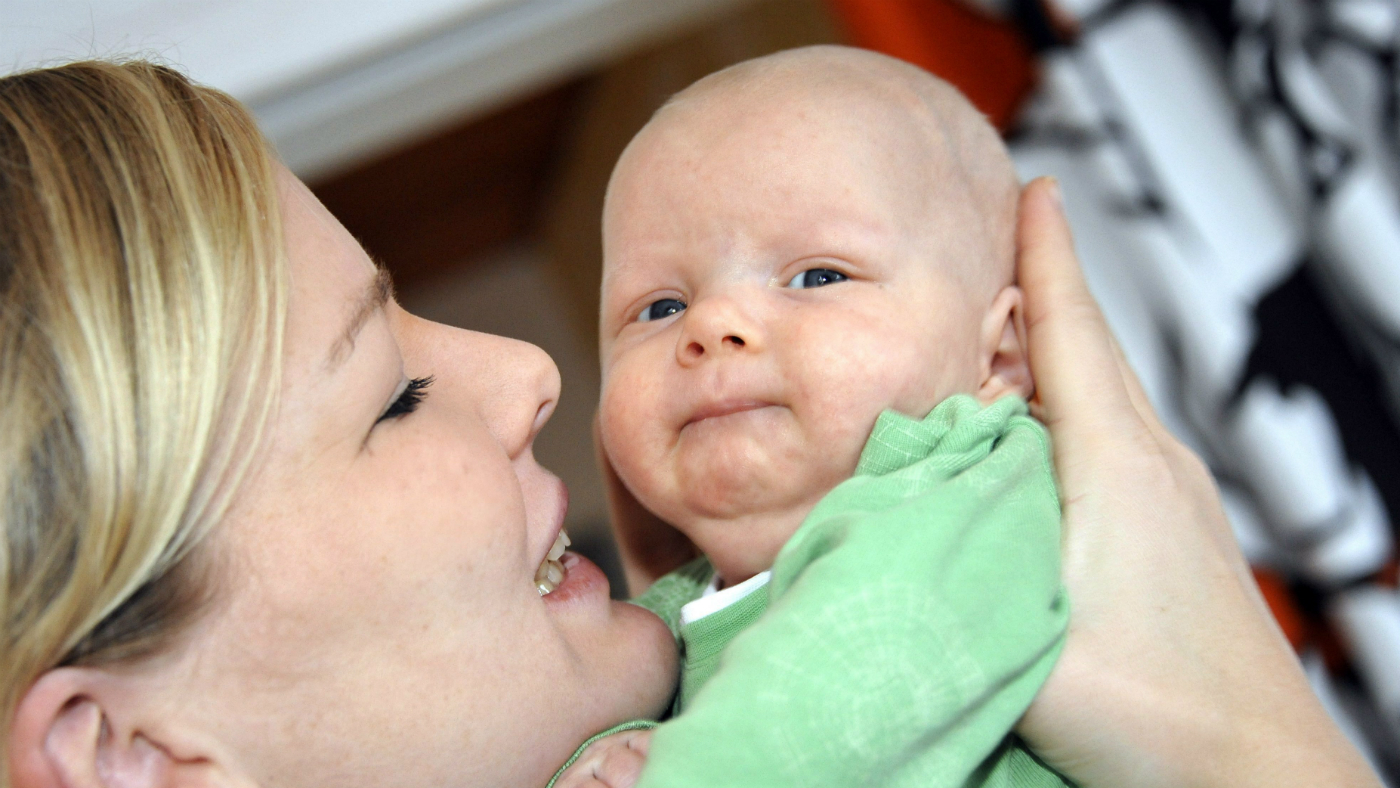Do psychopaths really lack empathy?
New study suggests failure to sympathise with others is a choice rather than inherent trait

A free daily email with the biggest news stories of the day – and the best features from TheWeek.com
You are now subscribed
Your newsletter sign-up was successful
Are psychopaths just misunderstood? A lack of empathy has long been viewed as a defining characteristic of the psychopath but a new study suggests that theory may be fatally flawed.
According to Swedish researchers, people with severe antisocial personality disorder do have the ability to understand the feelings of others - they just don’t want to.
Shows of empathy
The Week
Escape your echo chamber. Get the facts behind the news, plus analysis from multiple perspectives.

Sign up for The Week's Free Newsletters
From our morning news briefing to a weekly Good News Newsletter, get the best of The Week delivered directly to your inbox.
From our morning news briefing to a weekly Good News Newsletter, get the best of The Week delivered directly to your inbox.
Researchers at Sweden’s University West tested 278 participants through an anonymous online survey in order to assess whether those who demonstrated high levels of psychopathy, narcissism and Machiavellianism - known as the “dark triad” of personality traits - appeared to have an impaired ability to empathise.
The experts found that “dark personality traits had no relationship with ability-based empathy”, but that the traits correlated strongly with a lack of disposition to empathise.
Listen to "#153 Psychopaths, privileged actors and Saudi oil" on Spreaker.
Participants who scored high on a measure of psychopathy tended to agree with statements such as “other people’s misfortunes do not usually disturb me a great deal”. But their scores didn’t correlate with their performances in a “multifaceted empathy test”, in which they had to identify the feelings of a people expressing different emotions.
A free daily email with the biggest news stories of the day – and the best features from TheWeek.com
“In other words, psychopaths, Machiavellians and narcissists in the common population (i.e. non-clinical) don’t care much about other people’s feelings, but still have the ability to empathise,” study author Petri Kajonius, an associate professor in psychology, told psychology news website PsyPost.
The findings correlate with those of a 2013 study at the Netherlands’ University of Groningen which found that psychopaths do not lack empathy but can rather switch it on at will.
The Dutch researchers scanned the brain of psychopathic criminals while showing the participants videos depicting two hands interacting in a loving or a painful way, such as one hand stroking or hitting the other. The psychopaths were then asked to watch the clips again and to attempt to empathise with the actors.
The part of the psychopaths brains that related to pain showed activity - but only when asked directly to empathise. In a paper outlining the study in the journal Brain, the scientists argued that their findings showed that psychopaths have the ability to activate - and deactivate - an empathy switch.
Conflicting theories
The findings of the recent studies contradict other research that supports the more widely accepted theory that psychopaths have a genuine mental incapacity to put themselves in other peoples’ shoes. Or to put it another way, their brains are different to those of most people.
A 2011 study of brain scans of people with antisocial personality disorder - of which psychopathy is an extreme form - found reduced volumes in two sections of their brains’ frontal lobes compared with a control group of individuals without any mental disorders, says Live Science.
Another study, published in 2009 in the Archives of General Psychiatry, found that the area of the brain that controls empathy - the amygdala - showed “significant volume reductions” in psychopaths.
What makes a psychopath?
A lack of empathy has traditionally been considered characteristic of psychopaths, but it isn’t the only sign.
The Hare Psychopathy Checklist is the most commonly used tool to assess the presence of psychopathy in individuals. The 20-question test is intended to be used by psychologists to assess individuals, along with structured interviews and additional information such as official records.
Each question is scored on a scale based on how well it applies to the subject being tested, with one point for a “somewhat true” answer, two points for a completely true answer, and zero if it does not apply at all.
According to the test’s creator, Canadian criminal psychologist Robert Hare, scores above 30 indicate psychopathy.
- Do you have “excess glibness” or superficial charm?
- Do you have a grandiose sense of self-worth?
- Do you have an excessive need for stimulation or proneness to boredom?
- Are you a pathological liar?
- Are you conning or manipulative?
- Do you display a lack of remorse or guilt?
- Do you have “shallow affect”?
- Are you callous, or do you lack empathy?
- Do you have a “parasitic lifestyle”?
- Do you have poor behavioural controls?
- Do you have a history of promiscuous sexual behaviour?
- Do you have a history of early behavioural problems?
- Do you lack realistic long-term goals?
- Are you overly impulsive?
- Do you have a high level of irresponsibility?
- Do you fail to accept responsibility for your own actions?
- Have you had many short-term romantic or sexual relationships?
- Do you have a history of juvenile delinquency?
- Have you ever experienced a “revocation of conditional release”?
- Do you display “criminal versatility”?
-
 What are the best investments for beginners?
What are the best investments for beginners?The Explainer Stocks and ETFs and bonds, oh my
-
 What to know before filing your own taxes for the first time
What to know before filing your own taxes for the first timethe explainer Tackle this financial milestone with confidence
-
 The biggest box office flops of the 21st century
The biggest box office flops of the 21st centuryin depth Unnecessary remakes and turgid, expensive CGI-fests highlight this list of these most notorious box-office losers
-
 52 ideas that changed the world - 46. The unconscious mind
52 ideas that changed the world - 46. The unconscious mindIn Depth The theory of an obscured section of human consciousness has hooked psychologists for centuries
-
 True grit: is perseverance overrated?
True grit: is perseverance overrated?In Depth Well-rounded individuals may be more primed to succeed in a chaotic and fast-paced world
-
 How New Zealand changed its priorities with a well-being budget
How New Zealand changed its priorities with a well-being budgetIn Depth Jacinda Ardern’s government announces spending programme based on welfare of citizens
-
 Can the world learn from Switzerland’s gun culture?
Can the world learn from Switzerland’s gun culture?In Depth The Week Unwrapped looks at the Alpine nation where firearms ownership is high but mass shootings are low
-
 How to tell if you are dating a psychopath
How to tell if you are dating a psychopathIn Depth Psychopaths excel at studying people’s behaviour and using it to control them
-
 Why your first memories may not be real
Why your first memories may not be realSpeed Read Researchers find almost 40% of people have recollection from before the age of three - which is ‘impossible’